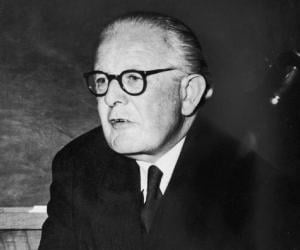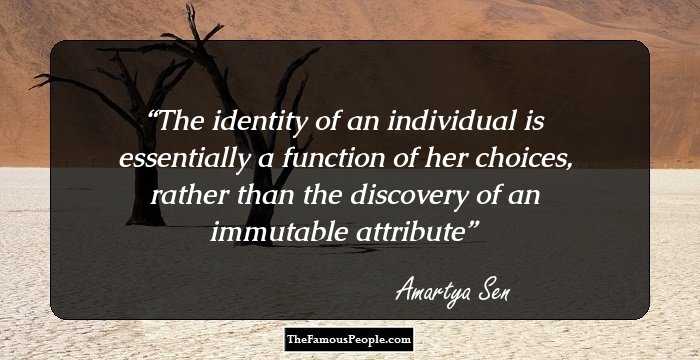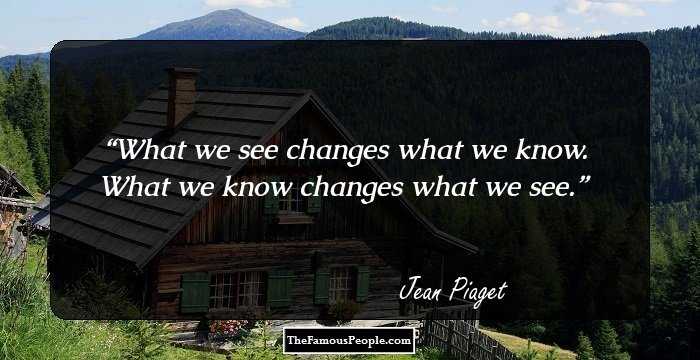
What we see changes what we know. What we know changes what we see.
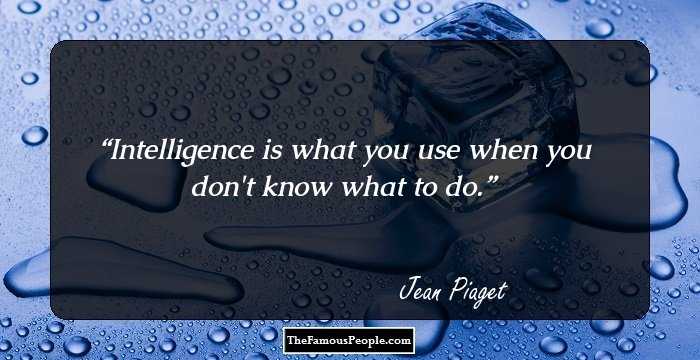
Intelligence is what you use when you don't know what to do.
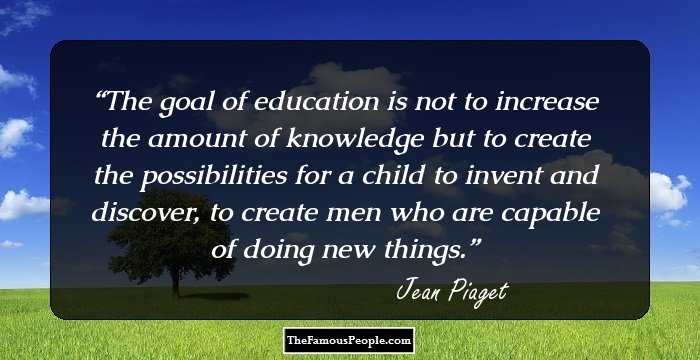
The goal of education is not to increase the amount of knowledge but to create the possibilities for a child to invent and discover, to create men who are capable of doing new things.
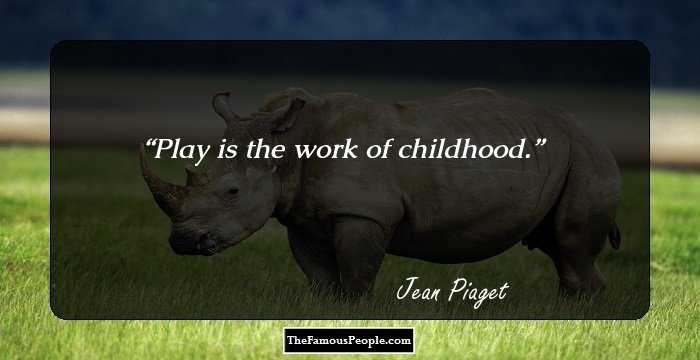
Play is the work of childhood.
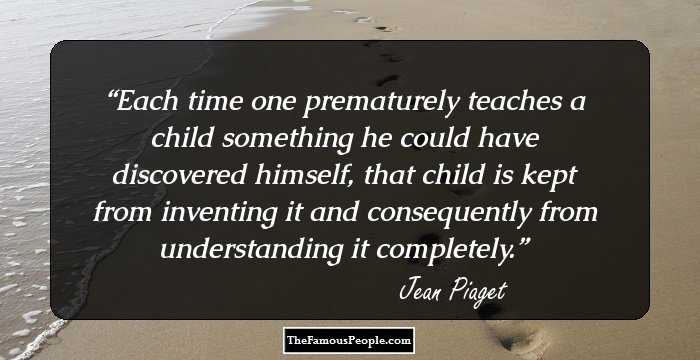
Each time one prematurely teaches a child something he could have discovered himself, that child is kept from inventing it and consequently from understanding it completely.
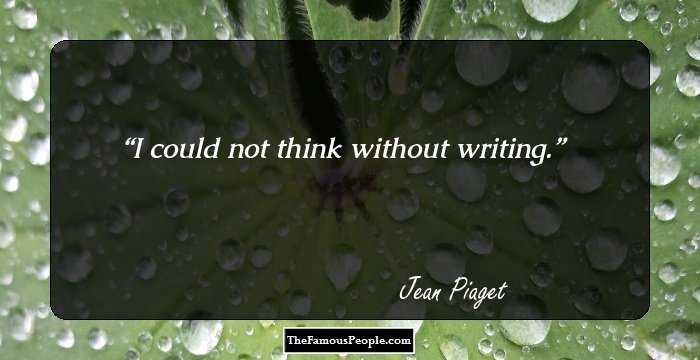
I could not think without writing.

The principle goal of education in the schools should be creating men and women who are capable of doing new things, not simply repeating what other generations have done.

Play is the answer to how anything new comes about.
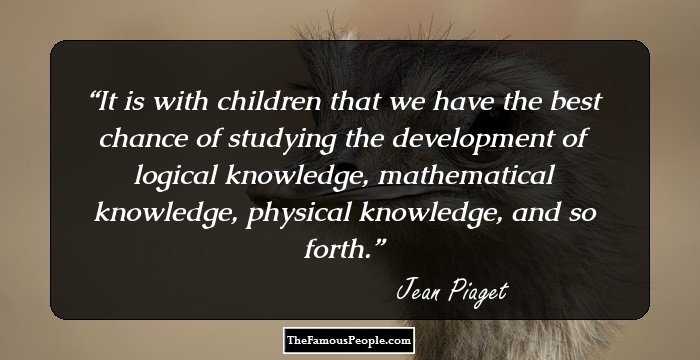
It is with children that we have the best chance of studying the development of logical knowledge, mathematical knowledge, physical knowledge, and so forth.
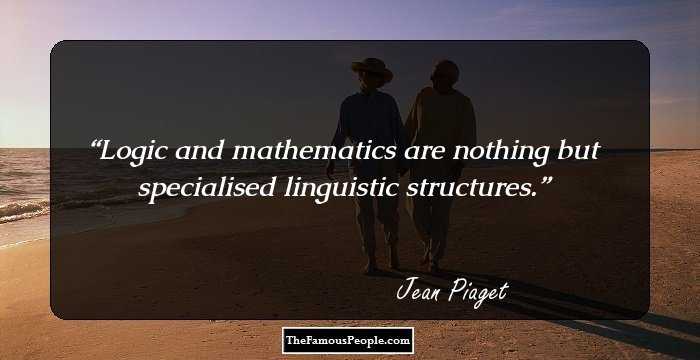
Logic and mathematics are nothing but specialised linguistic structures.
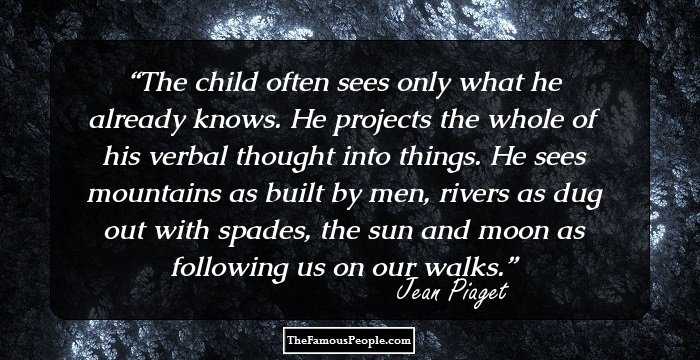
The child often sees only what he already knows. He projects the whole of his verbal thought into things. He sees mountains as built by men, rivers as dug out with spades, the sun and moon as following us on our walks.
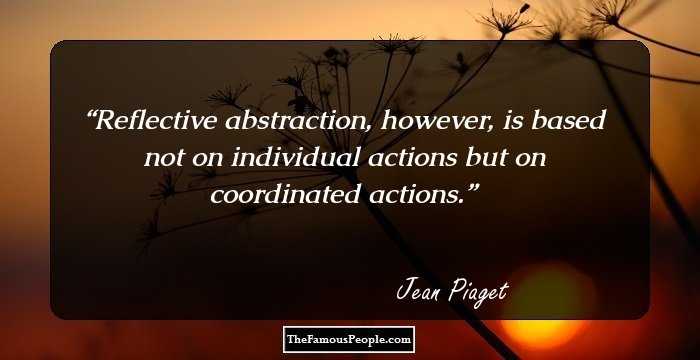
Reflective abstraction, however, is based not on individual actions but on coordinated actions.
The more the schemata are differentiated, the smaller the gap between the new and the familiar becomes, so that novelty, instead of constituting an annoyance avoided by the subject, becomes a problem and invites searching.
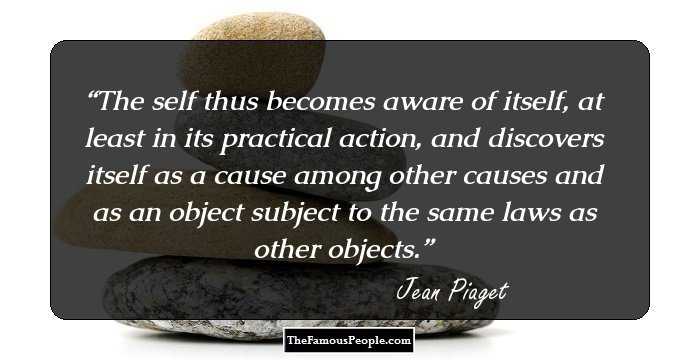
The self thus becomes aware of itself, at least in its practical action, and discovers itself as a cause among other causes and as an object subject to the same laws as other objects.
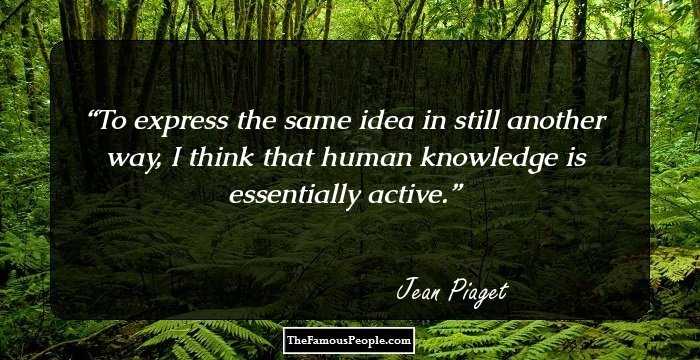
To express the same idea in still another way, I think that human knowledge is essentially active.
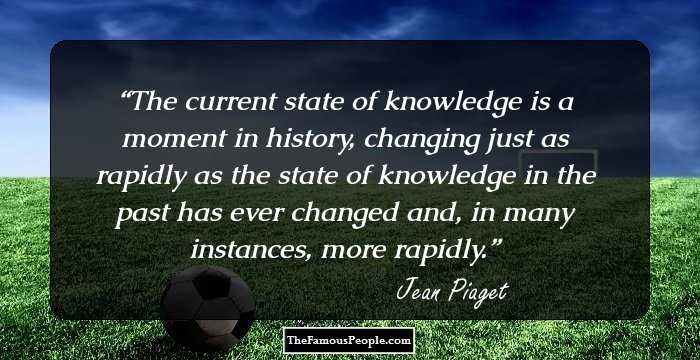
The current state of knowledge is a moment in history, changing just as rapidly as the state of knowledge in the past has ever changed and, in many instances, more rapidly.
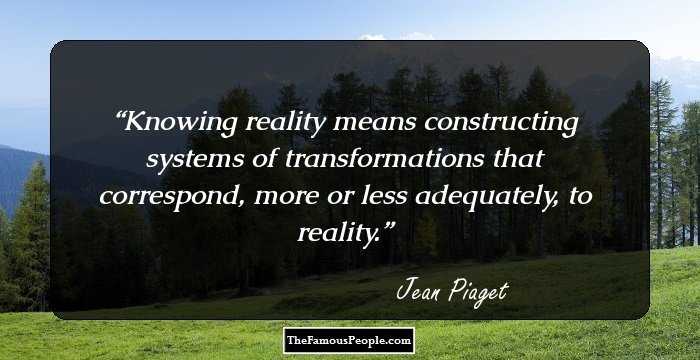
Knowing reality means constructing systems of transformations that correspond, more or less adequately, to reality.
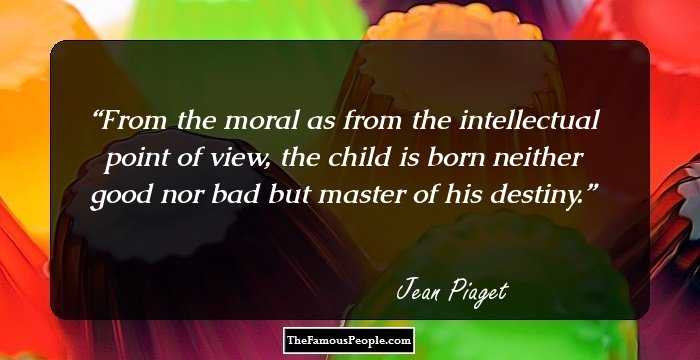
From the moral as from the intellectual point of view, the child is born neither good nor bad but master of his destiny.
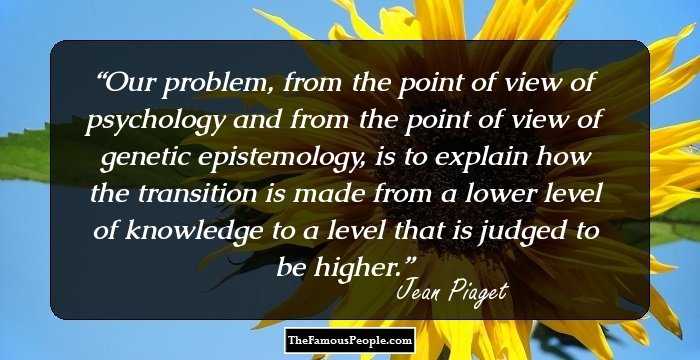
Our problem, from the point of view of psychology and from the point of view of genetic epistemology, is to explain how the transition is made from a lower level of knowledge to a level that is judged to be higher.
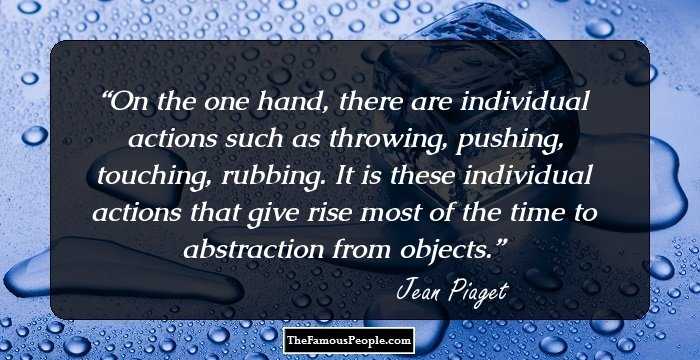
On the one hand, there are individual actions such as throwing, pushing, touching, rubbing. It is these individual actions that give rise most of the time to abstraction from objects.
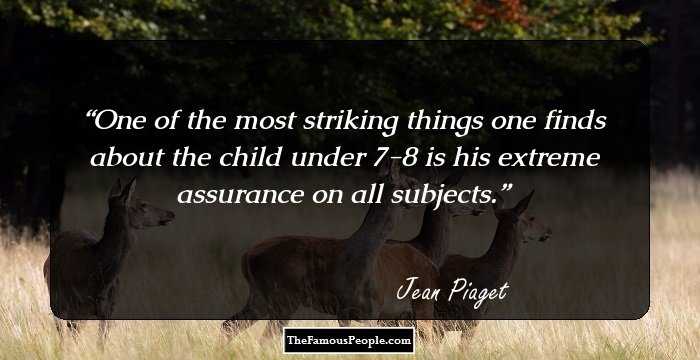
One of the most striking things one finds about the child under 7-8 is his extreme assurance on all subjects.
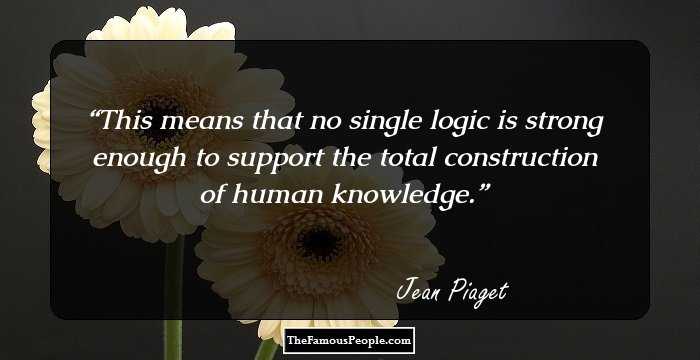
This means that no single logic is strong enough to support the total construction of human knowledge.
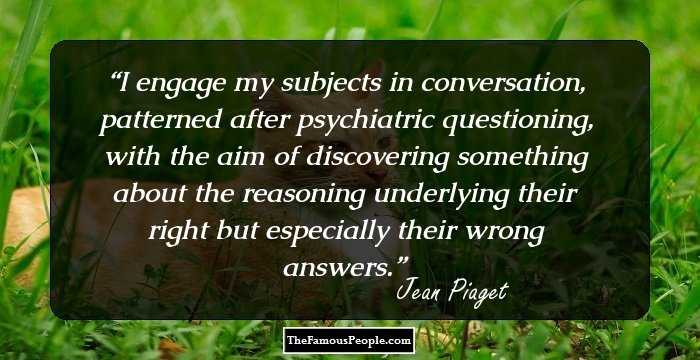
I engage my subjects in conversation, patterned after psychiatric questioning, with the aim of discovering something about the reasoning underlying their right but especially their wrong answers.
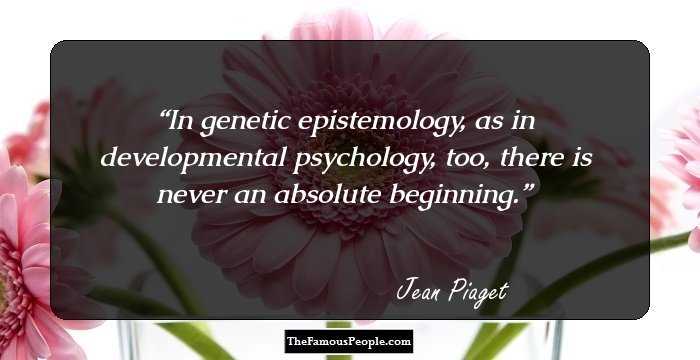
In genetic epistemology, as in developmental psychology, too, there is never an absolute beginning.
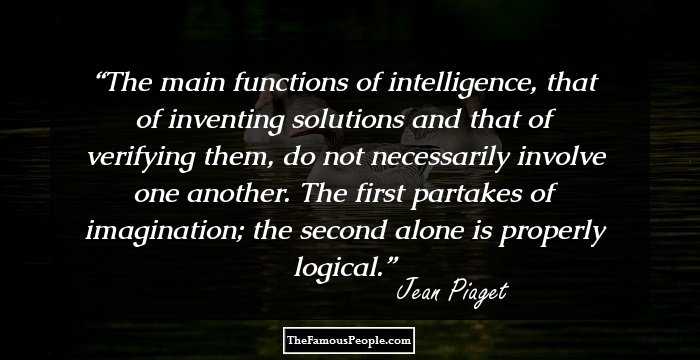
The main functions of intelligence, that of inventing solutions and that of verifying them, do not necessarily involve one another. The first partakes of imagination; the second alone is properly logical.
Children's games constitute the most admirable social institutions. The game of marbles, for instance, as played by boys, contains an extremely complex system of rules - that is to say, a code of laws, a jurisprudence of its own.
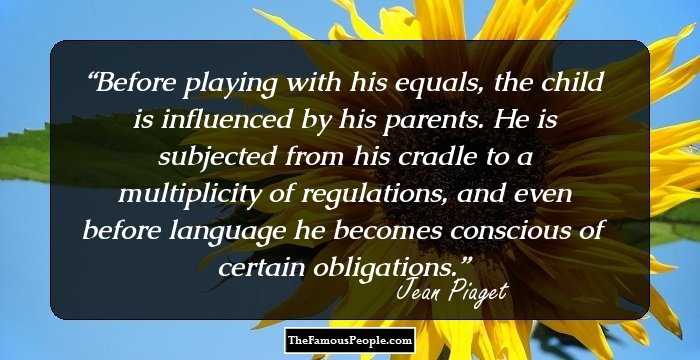
Before playing with his equals, the child is influenced by his parents. He is subjected from his cradle to a multiplicity of regulations, and even before language he becomes conscious of certain obligations.
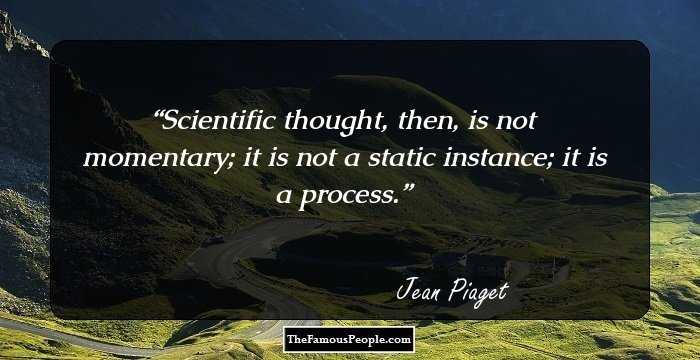
Scientific thought, then, is not momentary; it is not a static instance; it is a process.
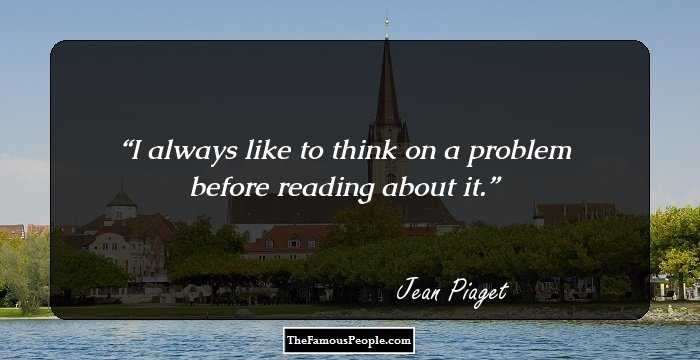
I always like to think on a problem before reading about it.
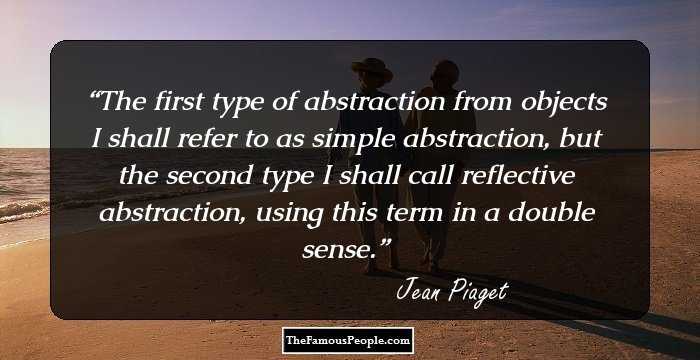
The first type of abstraction from objects I shall refer to as simple abstraction, but the second type I shall call reflective abstraction, using this term in a double sense.

